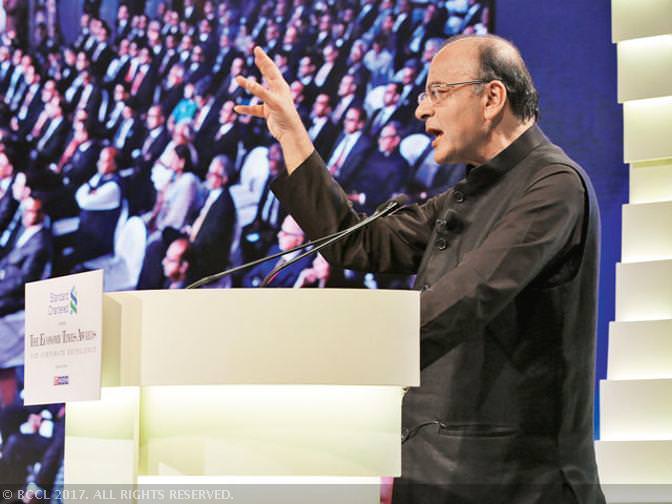The Finance Bill, 2017 which was passed on the 22nd of March by the Union Government (read the entire bill here) is part of the plethora of problems that have begun to plague our political system in the past year. In a smorgasbord of provisions, the Bill has many problematic aspects that were wilfully inserted and intentionally skimmed over:
1. Subversion of Procedure
Parliamentary procedures exist to prevent an arbitrary exercise of power in the process of passing legislation. They exist as pillars of democracy that seek to keep the legislative process transparent and accountable so that politicians do not pass provisions that are self serving and based on emotional whims or political fancies. The current Bill was a wave out the window to this pillar. Consider the current situation in the Lok Sabha where the BJP has an overwhelming majority: any legislation that is proposed by the BJP is passed without much ado.
Having been introduced as a Money Bill, the Bill is considered for voting only in the Lok Sabha (remember the BJP majority I mentioned earlier?) and the Rajya Sabha may only give recommendations that the Lok Sabha can choose to ignore. Having attempted at expanding the provisions that can be encompassed by a Money Bill, Finance Minister Arun Jaitley passionately argued that the Bill was not a backdoor legislation. The Bill contained 33 new provisions that were included willy nilly on the day debate in Parliament, completely baffling the members who knew the original provisions of the Bill.
The members bandwagoned the speaker into disregarding Rules of Procedure of the House, subverting the tenets of democracy that have been set up for a reason. This allowed the Bill to have provisions in it that have nothing to do with a Money Bill (related to the Representation of People’s Act, Telecom Regulatory Authority of India Act, etc.) which is supposed to do only with taxes and finances. No other laws are supposed to be included within its ambit as they are to be introduced separately. Not surprisingly, this is not even the first time a Money Bill has been used as a means to pass controversial laws.
2. Donations to Political Parties
The rationale behind companies being able to donate 7.5% of their average net profits over past 3 years is that the company is an extension of its shareholders who have a right to participate in the political process of their country. The process was transparent and information could be gained about donations via the Ministry of Corporate Affairs Portal with a small inspection fee. This cap has now been removed. Mr. Jaitley argued during his introduction that donors were afraid that transparency could lead to disclosure of their identities and thereby entail adverse consequences. What Mr. Jaitley has ignored is the necessity for accountability.
Under the current Bill’s scheme, companies can donate how much every money they please through “Electronic Bonds” and will only have to account for this money in their financial books without having to disclose the beneficiary of the donations. This means that shareholders do not have the rights to this information either. Additionally, companies will now cozy up to political parties through sizable donations, and the parties in return might skew their policies and laws to the companies’ favor. The government has managed to create here an unlimited channel of favors and fortune with secrecy as their gambit. It should be mentioned here that donations from Foreign Sources will also remain anonymous. While we let that fact sink in, it is predictable the atmosphere of non-accountability and favoritism that might develop.
3. Aadhar Mandatory
The government has made a habit of ignoring the Supreme Court’s directions, especially related to the Aadhar not being mandatory for citizens to avail services unrelated to PDS or LPG distribution. In a melange of notifications, the government has made Aadhar mandatory for many services, now compulsorily required for filing income tax returns. This linkage is unrelated to the intent & purpose of the Aadhaar (Targeted Delivery of Financial and Other Subsidies, Benefits and Services) Act of 2016. The Aadhar is also to be compulsorily linked with a person’s PAN card. What this does is create a gargantuan database of citizens’ data (financial metadata) which includes all kinds of data about a single person like name, age, address, mobile number, location, bank account details, tax payments, caste, religion. This data wielded by operators as weapons against their competitors and gain leverage against persons.
4. Increased Power of Income Tax Officials
Section 132 of the Income Tax Act empowers Income Tax Officers to raid businesses and individuals if they have “reason to believe” that there is something sketchy about their finances. They can enter, search buildings, break down doors, and search any person. The amendment in the Finance Bill provides that officers do not have to disclose their “reasons” during search and seizures to any person, tribunal, or appellate authority. What prevents the officials from arbitrary searches and unnecessary seizures? Assessment and raids can be done retrospectively from 1962. They can also attach the property of the assessees and “provisionally seize” any property during raids. This is in stark contrast to the Income Tax Act of 1962 that only allowed them to seize assets that were the subject matter of that raid. Raids can be conducted on charity events as well, along with the power to demand information to conduct surveys. Officers can now raid anybody they want whom they believe has done something in the past or present. This gives the government the power for targeted raiding to wreak havoc on dissidents.
5. Tribunal Trouble
The Bill merged together 8 tribunals into ones that already exist (For example, the Competition Appellate Tribunal has been merged with the National Competition Law Appellate Tribunal). The appointments, terms, salaries, removal, resignations, and other conditions of service can now be decided by government notified rules. This gives the executive hand in these tribunals, a vexed situation considering that the government itself is often a litigant before these tribunals. The Supreme Court had noted that these tribunals are at par with the High Courts of the country and must be granted a degree of independence from executive control.
6. Cashless Economy
The Finance Bill, 2017 also brings down the threshold limit of cash payments from Rs 3 lakhs to Rs 2 lakhs. This could prove to be a means to effectively check tax evasions.
The glaring lacunae in the Finance Bill beg to question the transparency with which the government wishes to operate, what they propose to do with citizens’ data and how the country is going to reconcile this blatant disregard for laws and procedures.
Also Read: PRS Analysis of the Proposed Amendments to the Finance Bill, 2017




